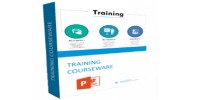Achieving the ITIL® Expert level was the culmination of years of learning, applying the knowledge, pursuing the certification and setting me apart from my peers.
At the time, it was a crowning achievement in knowing how to manage IT as a service and, naturally, I thought “This is it – I’ve tamed the wild horse!”
For a guy in his late 20s, it gave me a new level of confidence when interacting with colleagues and clients. There were times when my colleagues, on a call to a customer, would say: “We’ve got an ITIL expert on the phone right now…” Though still relatively junior, I was treated as an authority in IT service management.
The journey to ITIL 4
ITIL has always been about complementary best practices and this would turn out to be key with the general movement towards Agile, DevOps and increasing touchpoints with the customer.
While these other practices lived outside the ITIL framework, they were becoming more important to overall success. Consequently, my own learning journey continued into areas such as Scrum and Lean Six Sigma.
After years of studying and taking exams to reach the pinnacle in ITIL v3, my first reaction to the launch of ITIL 4 was unprintable! But I knew that, in service management, the culture of “learn, unlearn, re-learn” is unavoidable, like it or not!
So, when I came back to studying ITIL 4, I realized that it reflected many of the mentioned practices and offered a really holistic look at managing IT as a service and aligned with the direction of travel in industry.
IT and digital are changing so rapidly that you simply have to evolve with them.
From ITIL Expert v3 to ITIL 4 Managing Professional
I recently made the transition to ITIL 4 Managing Professional – including the management practices and exploring other best practices and methods – such as Lean, DevOps and Agile – within the context of ITIL 4.
I think one of the biggest changes is how much practitioners become connected with the customer through applying the framework. The co-creation of value – in particular – helps develop the mindset of checking in with them and understanding their wants and needs.
This is really key in digital transformation because of the pace at which things happen. Being able to make that connection with customers ensures their transition to digital services delivers the capabilities they want.
Life-long learning and comb-shaped skills
There’s a useful word from Greek mythology – after the poor guy made to roll a boulder up a hill for eternity – that sums up working in the digital age: “Sisyphean” – the task that can never be completed.
This is where we’re at: we’re all life-long learners now and if you don’t want to recognize this, there’s always somebody else happy to take your spot. When you think, like I did, that you’ve reached the summit of your current “mountain”, you then see other mountains to climb.
ITIL 4 Managing Professional is hugely significant in terms of industry direction and the expectation of skills you need. And it encapsulates the idea of comb-shaped skills: having both broad knowledge and multiple areas of specialization simultaneously.
This is the evolution in IT and digital service management: where people bring a range of skills sets to solve a problem. ITIL 4, in my opinion, offers one of the best foundations to do this.
News by Adam McCullough – ITSM expert








